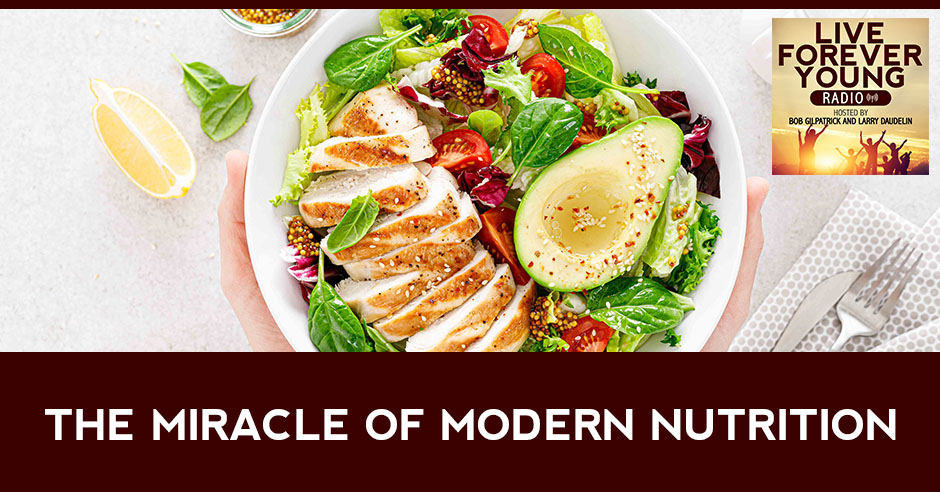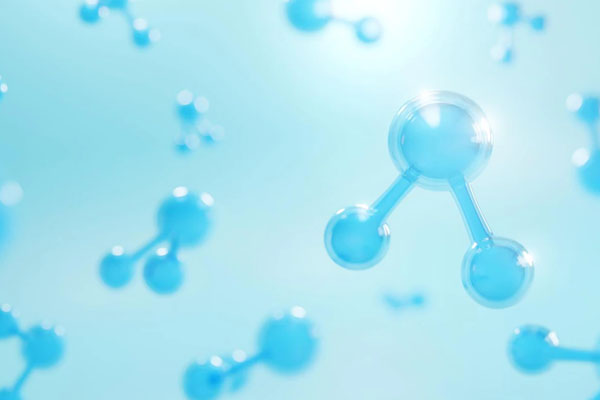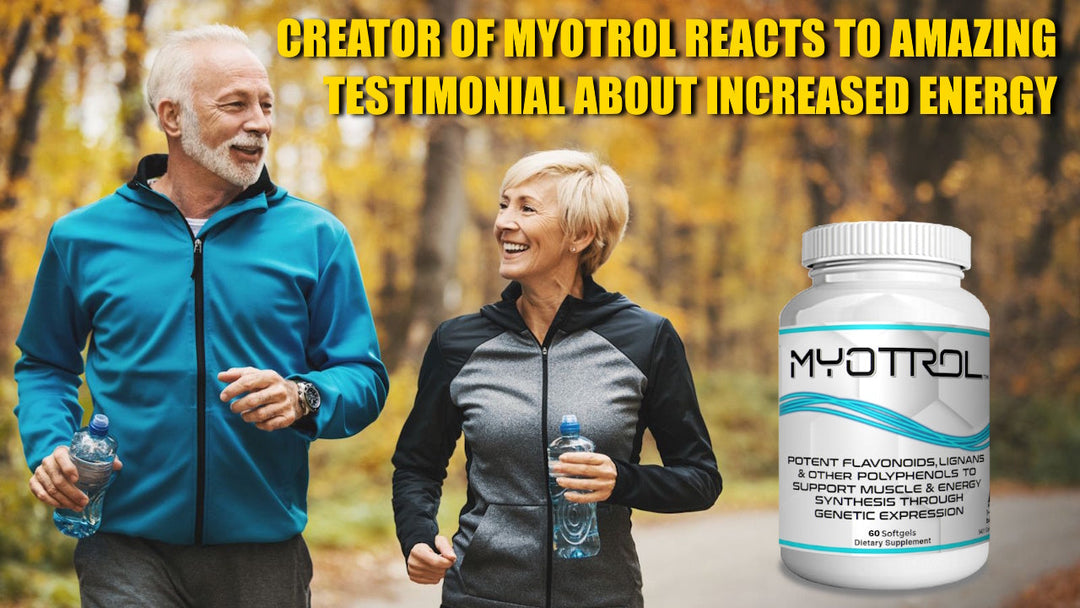The Miracle Of Modern Nutrition

Technology has transformed and continues to lead many practices down the path of nonstop evolution. To see how exactly it helps collective knowledge evolve, Bob Gilpatrick and Rollie Culp cover the Miracle of Modern Nutrition. Learn the health benefits that technological breakthroughs in this medical space have to offer. Our hosts go through the most exciting discoveries in the world of science, from its start in the 1700s as a cure for scurvy up to today's in-depth studies of human DNA and epigenetics. Bob and Rollie also talk about why it is now easier than ever to get healthy and provide the fundamental nutrition the body requires to perform at its peak.
---
Watch the Show Here:
The Miracle Of Modern Nutrition
Some of the greatest discoveries and breakthroughs in history have had more to do with luck and necessity rather than brilliant ideas. In this episode, Bob and Rollie cover the Miracle of Modern Nutrition from its accidental start in the 1700s as a cure for scurvy up to nowadays, in-depth studies of Human DNA and epigenetics. Learn the benefits for your health that technological breakthroughs in Modern Day Nutrition have to offer and why it is now easier than ever to get healthy and provide the fundamental nutrition your body requires to perform at its peak. Sit back, relax, and get ready to live forever young.
---
I am here with Rollie. How are you doing, Rollie?
I’m good. How is it going?
Awesome.
We're going to be making more improvements for now. We've got it set up. Maybe we'll be able to show some people a few more different environments instead of the wood paneling. For now, we're going to move forward.
We're going to talk about the Miracle of Modern Nutrition. This is a very important topic because we'll show you all the discoveries that have happened that have made it very easy now for people to be able to get very accurate amounts of the nutrients that they need in the right ratios and how it's easy to take it and that it's now very affordable to make your body shine and hum like a fine machine.
That's what's happening now. We are also going to turn back the hands of time and go over some of the historical significant advancements in nutrition. Going back years ago, when people were traveling and doing a lot of sailing, you have probably heard about scurvy and a lot of soldiers that were getting scurvy. For a long time, they didn't know what would it cause. It would cause rotten teeth.
People's teeth would fall out. It was the main thing that they noticed. People would die from scurvy. It was hundreds of years ago when a ship's surgeon had decided that he was going to try giving these sailors limes to eat on the trip over from England to the new world and it worked. They started eating limes on the trip over. It solved the problem. They didn't get scurvy.
That's weird. Randomly, he chose limes. Did he have a hunch?
I don't know exactly how he discovered it or thought of it, but they started calling these sailors limeys. Still, now you have a nickname for people who are British. Some people will call them limeys. That's where it came from. It wasn't until the 1920s and the 1930s when they were able to figure out that this was vitamin C that was in the limes. It was in France that they had created some new technology that allowed them to identify individual bioactive compounds like vitamin C.
It was then when they were like, “That's vitamin C that was helping with the scurvy.” At the same time, the lack of vitamin D was causing rickets. They now knew that it was this particular vitamin, then they discovered the B vitamins and they knew, for example, that anemia or low energy was being caused by the lack of B12.
They had the ability in France from the technology they created to start identifying technically their molecules, as the time, vitamins. Where did they even come up with the idea of vitamins? Where did the name come from? We don't know that. It's funny if you think that there was no such thing as vitamins and now you have these people that are able to identify molecules. Thank God for the French.
Vita means life. Min had another meaning. I forgot what the meaning of that was, but they combined it together and came up with this cool new name, which is important. They've discovered all the other vitamins including all of the vitamin E derivatives and they've been able to figure out. This was a revolution because now they could tell which of these compounds would help with what things. It was a form of medicine because they didn't have a cure for scurvy. That was surgery or a pill. It was part of the diet.
At that point, people might have taken note, “Diet has a lot to do with health.” Maybe before that, they weren't quite as aware. Around 1941, these discoveries in the ‘20s and ‘30s led to what we know as RDA or Recommended Daily Allowances.
That was a war effort. It was the Second World War. There was a lot of fear around the famines because of the war. There was a commission created to begin to examine how much of these different compounds that had been discovered like vitamins, minerals, etc., do we need. That way it could be more precise. This led to the fortification of foods.
 Modern Nutrition: A commission was created to examine how many compounds have been discovered and how much your body needs. This led to the fortification of food.
Modern Nutrition: A commission was created to examine how many compounds have been discovered and how much your body needs. This led to the fortification of food.
Vitamin D in the milk.
Calcium added to cereals and things like that. The RDA came about as part of that war effort. A lot of it is still being used. Some of it's still accurate. It's been adjusted many time with more research.
They upped the amount of vitamin D because they didn't realize how important. It was not only for bone health because that's one of the main things vitamin D does, but for genetic expression. Vitamin D is what unlocks the protective sheath on the DNA. That's probably why they come to the next discovery in the ‘50s, which was replicating DNA.
People could observe for a long time that there was something that was part of the human body that was genetic. It was easy to see because a child would be born and he looked like the mom and the dad. They knew it was being passed down, but they didn't know exactly how. In the ‘50s, they figured out how DNA was dividing and replicating itself. That led later many decades later when they initiated the human genome project. They wanted to try to figure out the entirety of the human genome.
They're still working on it.
They also discovered at that time during that multi-year project. That's when they began to understand the importance of epigenetics, which is the terrain that the genome is in and what's influencing it. That gave rise to lots of other research, including later when Dr.Bruce Lipton wrote the book, The Biology Of Belief. He was able to show how your own thoughts were affecting your genetic expression.
Epigenetics is the study of the environment that the genes or genetics take place in or our foster.
The effect of the environment, including your thoughts, diet and the totality of that terrain. There are numerous physicians that have written books about the importance of the terrain to your health because one person can experience the same assault whether it's a bacteria or something else, and another person experiences the exact same thing. One of them gets symptoms of illness and the other doesn't. What's the difference?
We were talking about that concept in our last episode about Why Winter Weakens The Immune System. A lot of these watershed discoveries in the history of modern nutrition, the scurvy, figuring out the vitamin C, leading to the vitamins in the ‘20s and ‘30s, to the recommended daily allowances for the war effort, to the discovery of replicating DNA and then the human genome process. Those are all major benchmarks in nutrition that got us to where we are now. There is quite a bit of thing that happened that they've discovered.
There's the discovery that we have an entire ecosystem of microorganisms, bacteria, viruses, fungi, and other small microorganisms that are part of the totality of a human. You can identify a human cell. It has characteristics and human DNA. Without the rest of the life forms that are on our bodies on the skin or inside our bodies, you wouldn't have a being that would look like us.
We are designed genetically to live as a co-host. Most people see our body, our skin, the clothes we wear, our eyes, and our teeth. In actuality, we are this massive collective of trillions of bacteria, human cells, and fungal cells that are all working together symbiotically. That discovery of the totality of the genomes of all of these microorganisms that are in and on us. If you look at the total number of human cells, best estimates around 37 trillion, that's about 1/10 of the totality of the cells that are shell encompasses.
We're only like 1/10 human the rest. The rest is all bacteria and other stuff like the bird that sits on the rhino's back and picks the ticks, the bloodsuckers, anything that's on the rhino, it's a symbiotic relationship. Your body is living in this homeostasis of all these things. It's crazy when you think about it.
A human being has human cells and has many different types of microorganisms that have their own DNA. Together, this presents something that looks like a human being. Our consciousness also is dependent on those microorganisms. Our consciousness is partly a result of neurotransmission with chemical compounds in your brain, moving from one place to another, from one part of the brain to the other, from one cell to another, and from supply cells to receptor cells. The creation of those neurotransmitters like serotonin are dependent upon your microbiome-producing metabolites, which lead to the creation of things like serotonin.
 The reason why that's dependent on your microbiome and most people don't know is that the neurotransmitters are manufactured in the gut. If you're not using probiotics, you might have an imbalance of bad bacteria, especially with all the sugars and stuff that people eat. Those sugars can lead to bad bacteria, whereas you want to have stuff that's undigestible fibers so that the good probiotics can live. You want to make sure that you eat stuff that doesn't foster or fester bad bacteria in the gut because when you make those neurotransmitters, they get transferred to the head or the brain where they try to be used, but if they're not made correctly, they don't function properly.
The reason why that's dependent on your microbiome and most people don't know is that the neurotransmitters are manufactured in the gut. If you're not using probiotics, you might have an imbalance of bad bacteria, especially with all the sugars and stuff that people eat. Those sugars can lead to bad bacteria, whereas you want to have stuff that's undigestible fibers so that the good probiotics can live. You want to make sure that you eat stuff that doesn't foster or fester bad bacteria in the gut because when you make those neurotransmitters, they get transferred to the head or the brain where they try to be used, but if they're not made correctly, they don't function properly.
It starts before that in your mouth. A discovery that some scientists made was about the specific types of good bacteria that you can put into your mouth that kill the bad bacteria in your mouth. They're finding that it's getting rid of people's sinus problems with breathing, that all originated from bacteria in your mouth.
You don't think about your mouth being like that, but that's where digestion starts.
The other thing is the discovery of amino acids which are the building blocks of proteins. Our bodies are protein-making machines. They make them with the use of amino acids and there are numerous types of amino acids, some of which your own body can make, and some that you have to take in by mouth. This was a big discovery, knowing which amino acids we need to consume. We make less of them as we age. It's good to take those that we do make.
As you get older, you don't create as much. Things like collagen is a good thing for helping with amino acid rebuilding. In our barley, we have tons of amazing amino acids from the sprouting process. One of the things that goes hand in hand with that would be metabolites.
Also, metabolic enzymes. The discovery of enzymes back in the early 1900s was also a revolution. Enzymes can do many different things, but they're crucial for the human body because the metabolic enzymes act like glue. They'll grab this amino acid, arrange them in the right way, and donate an electron to bond them together. This is how proteins get created.
A metabolite is a chemical compound that gets created when two other things come together or when one thing gets digested or torn apart. You can have upstream and downstream metabolites. A lot of metabolites are created in your gut, large intestine, where those bacteria we talked about are interfacing with fiber. They're fermenting the fiber. In that process, these metabolites get created.
 Modern Nutrition: The metabolite is a chemical compound that gets created when two other things come together or when something gets digested or torn apart.
Modern Nutrition: The metabolite is a chemical compound that gets created when two other things come together or when something gets digested or torn apart.
These are all discoveries that came along with the discovery of vitamins and it's very important to know about those. Also the discovery of antioxidants which is what slows our rate of aging, the burn of polyphenols, which are compounds in plants and that are different than vitamins. All of these discoveries lead us to understand what it is that we take in by mouth and how it affects the major mechanisms of the human body like our digestion and the absorption of nutrients.
With antioxidants, you detoxify the effects of those things and compounds enlargening.
It helps with your circulation.
It increased circulation. That way, if you have blood pressure problems or anything like that, it can help to regulate that out naturally. Those discoveries were something that we just learned about. Polyphenols, which again are from plants are not necessarily vitamins, are another beneficial compound that converted into human form once we eat them.
Things like resveratrol and curcumin have an effect on your genome. They're part of the process of that epigenome. We know certain specific compounds that are in a specific plant that will activate a very specific part of the genome. That becomes important because we can now say, “If you take this pill or this powder that has this in it, this is likely what's going to happen in your gene.”
You'll increase your energy. You'll create ATP. There are all these good effects that these discoveries have brought about for not just health, but in general. When you go over and you'll think about digesting better, absorbing these things better, your circulation working better, you're giving your body the ability to repair faster than it can burn up, which is what we talk about all the time. How can you do it? It's more accurate now. Modern technology has made ratios. With the RDA, you can figure out how much of this you're taking.
How much of each thing, and not only that but how does each interact with the other? We know that, for example, iron is very important for the human body. You're going to be tired if you have too little. You're going to also be tired if you have too much. You need vitamin C to help absorb iron. How much of each? How much iron do you need? How much vitamin C do you need to help absorb the iron?
All of these factors can now be considered when you make a formulation. As a nutrition company like we are, when we create created the total health system, it was taking into consideration all these things that we're discussing. We're aware of the discoveries and of the other companies that can help us to put together things the right way. It's very easy to do.
One of the good things is that instead of spending hundreds of bottles on this or that pill, we've taken the time and the effort to make a health system that gives them all to you. It's 3 powders and 4 pills a day. Everybody needs these fundamental nutrition nutrients.
There are about 4,000 compounds in the total health system. It's now easily affordable. It only takes a couple of minutes in the morning to do it. This is where we stand in 2022 with all the information going all the way back to the 1920s and coming up to the modern day. Every single day, there are at least 200 new scientific papers published just on vitamin D. Imagine what happened between 2022 and the 1920s with all this information?
For the last years, with the knowledge that was available then and we've made modifications as we go, we're able to say, “With all that knowledge that's out there, what do we do so that a person can call us on the phone, hit our website, get this easy-to-use total health system, and they don't have to become a PhD in nutrition science and shop in nineteen different places to try to piece together all of these compounds in one package?” That's what we've done for people.
One of the hardest parts of getting started on supplements is knowing where to begin. You can get intimidated. You walk down the aisle and there are all these bottles. This says, “This does that.” It comes down to fundamental nutrition regardless of your age, race, or gender, a body needs certain things. By getting this foundation, then you can build your health upon. In any specific health goal that you have an issue with, you can address it a lot quicker. A lot of the time, you get your basic nutrients replenished. You start repairing. A lot of those things start to go away. If that doesn't work, then there are other things like there's ashwagandha to help with stress.
We have our Good Night Formula, which is one of the things we created with all this knowledge. We found all the information on what helps your body go into progressive relaxation. We found all the nutrients and vitamins that you have to combine with natural compounds like melatonin and all those sleep-inducing compounds. That way you don't have to rely on something like Benadryl and wake up groggy. You've had Benadryl forever. You can look and say, “Here's something natural combined with nutrients that'll work as opposed to having to try to knock you out with a sleeping pill.”
You have to drink a lot of coffee to try to wake up in the morning. In 2023, we'll see even more discoveries as we had in 2022 with the discovery of the combination of probiotics that are now helping people with sinus conditions. There will be a lot more of that to come. In the meantime, that's about it for us for this episode.
We'll keep you posted as things get discovered. I can't wait to see what the next 100 years are going to bring up. I'm going to be here for it. That's all I got, Bob. This was a good show. I like the new digs. If you guys want to check out all our old shows, go to BoomerBoost.com or LiveForeverYoungRadio.com. This is our 67th episode. Go check out the other 66. It covers many topics from nutrition to mental health, stress and anxiety.
I was speaking to a man on the phone. He needed a lot of help. As I listened to him and took some notes, I was like, “We have a show where he could learn about that.” I ended up telling him about four different shows. I opened up my computer screen and looked at the list of them. I'm like, “The third row down over on the right, there's this podcast that you're going to need and then this one goes with that you're going to need to. In regard to the nutrients you're going to take, here are two podcasts.” He is like, “This is great. I'll have all the information I need.” Once he gets in there, he'll find other things that pertain to him as he looks around.
We're not just making a show. We're helping you discover the miracles of modern nutrition in these shows too. Read, get educated, and enjoy.
Thank you, everyone, for reading the blog. We'll see you on the next episode.






Leave a comment